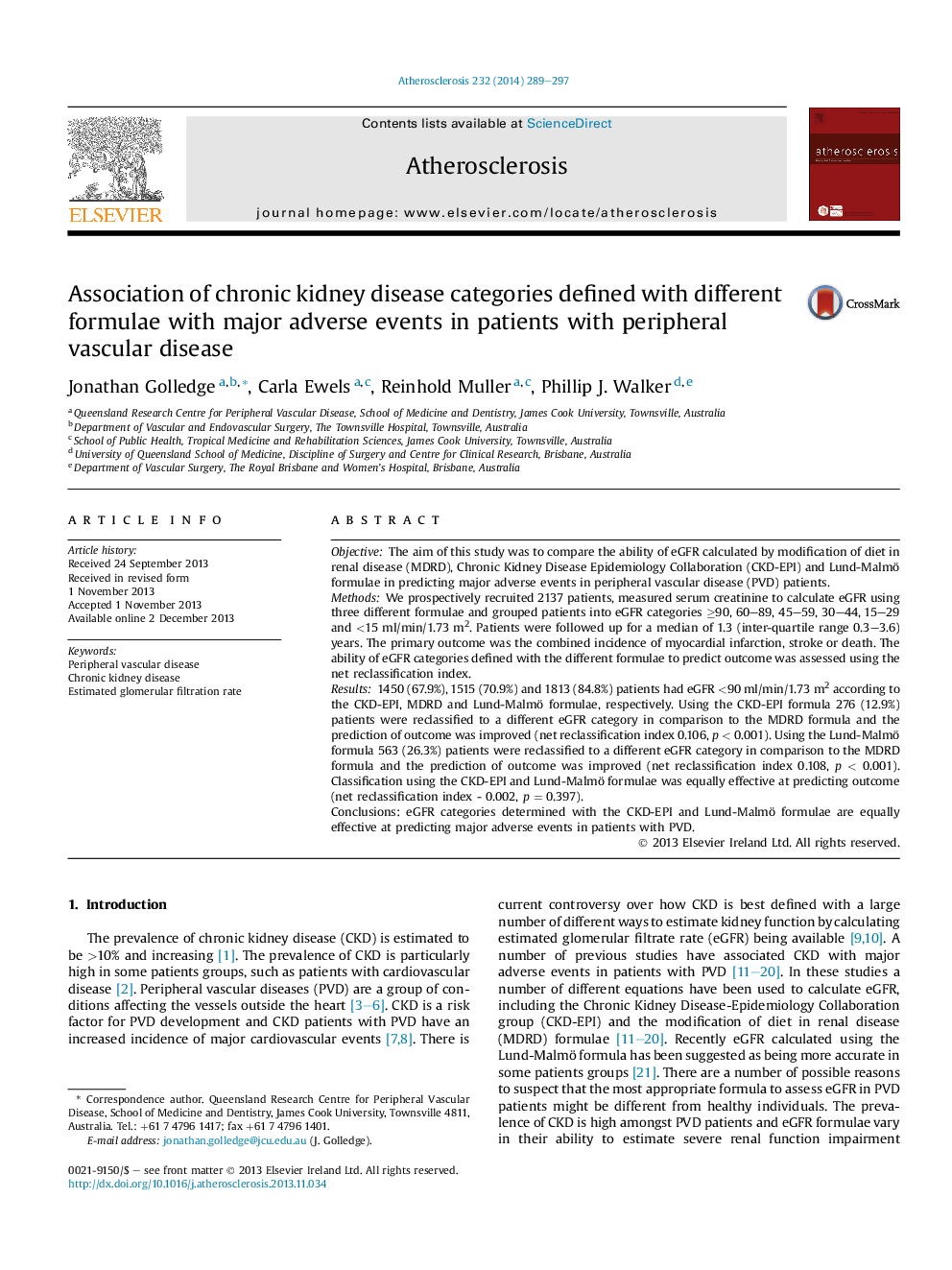| کد مقاله | کد نشریه | سال انتشار | مقاله انگلیسی | نسخه تمام متن |
|---|---|---|---|---|
| 5946848 | 1172362 | 2014 | 9 صفحه PDF | دانلود رایگان |
- Chronic kidney disease is common in patients with peripheral vascular disease;
- Estimated glomerular filtration rate predicts major adverse events;
- The CKD-EPI or Lund-Malmö, rather than MDRD, formulae are better at predicting events.
ObjectiveThe aim of this study was to compare the ability of eGFR calculated by modification of diet in renal disease (MDRD), Chronic Kidney Disease Epidemiology Collaboration (CKD-EPI) and Lund-Malmö formulae in predicting major adverse events in peripheral vascular disease (PVD) patients.MethodsWe prospectively recruited 2137 patients, measured serum creatinine to calculate eGFR using three different formulae and grouped patients into eGFR categories â¥90, 60-89, 45-59, 30-44, 15-29 and <15 ml/min/1.73 m2. Patients were followed up for a median of 1.3 (inter-quartile range 0.3-3.6) years. The primary outcome was the combined incidence of myocardial infarction, stroke or death. The ability of eGFR categories defined with the different formulae to predict outcome was assessed using the net reclassification index.Results1450 (67.9%), 1515 (70.9%) and 1813 (84.8%) patients had eGFR <90 ml/min/1.73 m2 according to the CKD-EPI, MDRD and Lund-Malmö formulae, respectively. Using the CKD-EPI formula 276 (12.9%) patients were reclassified to a different eGFR category in comparison to the MDRD formula and the prediction of outcome was improved (net reclassification index 0.106, p < 0.001). Using the Lund-Malmö formula 563 (26.3%) patients were reclassified to a different eGFR category in comparison to the MDRD formula and the prediction of outcome was improved (net reclassification index 0.108, p < 0.001). Classification using the CKD-EPI and Lund-Malmö formulae was equally effective at predicting outcome (net reclassification index - 0.002, p = 0.397).Conclusions: eGFR categories determined with the CKD-EPI and Lund-Malmö formulae are equally effective at predicting major adverse events in patients with PVD.
Journal: Atherosclerosis - Volume 232, Issue 2, February 2014, Pages 289-297
